There are strong reasons for optimism about the continued development of U.S.-Taiwan relations in the coming years, writes Ryan Hass. Under the incoming Biden administration, the overall trajectory of strengthening ties will continue. This piece originally appeared in the Taipei Times.
President-elect Biden and his team soon will confront a raging pandemic, a severe economic crisis, demands for progress in addressing racial injustices, intensifying climate-induced crises, and strained relations with allies and partners in many parts of the world. They will be oriented to view China as America’s greatest geostrategic challenge, but not the most immediate threat to the health and prosperity of the American people. Amidst this daunting inheritance, U.S.-Taiwan relations will stand out as a bright spot, an example of progress that should be sustained.
There are strong reasons for optimism about the continued development of U.S.-Taiwan relations in the coming years. Given my vantage from Washington, D.C., I will focus on the American perspective.
First, there is deeply rooted bipartisan support in the United States for Taiwan. President Tsai Ing-wen (蔡英文) and her administration have nurtured this support through persistent engagement with leaders and leading thinkers on both sides of the political aisle, including the president-elect. Tsai’s prudent, moderate, predictable approach to cross-Strait issues has earned the confidence of Washington. Biden publicly congratulated Tsai on her re-election in January and later praised Taiwan’s response to COVID-19. Tsai was among the first world leaders to congratulate Biden following his victory.
Second, the Biden team will understand the importance of Taiwan’s success for America’s strategy in Asia. Biden has written that the United States will “stand with friends and allies” in Asia, including by “deepening our ties with Taiwan, a leading democracy, major economy, technology powerhouse — and a shining example of how an open society can effectively contain COVID-19.”
The incoming team recognizes that Beijing’s objective is to incorporate Taiwan within the PRC system under the one-country, two-systems model. They understand the need for vigilance following Beijing’s actions toward Hong Kong. Michèle Flournoy, a leading contender to become Biden’s secretary of defense, has written about the need to strengthen deterrence against Beijing, either by “denying the PLA’s ability to achieve its aims or by imposing costs so great that Chinese leaders ultimately decide that the act is not in their interest.” Flournoy has directly connected her thinking to Taiwan’s security.
Third, the incoming team understands longstanding objectives that have guided America’s approach toward Taiwan. I have worked with many of the people expected to be responsible for Taiwan policy and can vouch for their grasp of the issues. Taiwan will be viewed as a partner to be valued, not a card to be played in competition with China. U.S. policy will be focused on helping Taiwan gain confidence in its security, control of its economic destiny, and dignity and respect on the world stage. Specific decisions will flow from these objectives.
Fourth, there will be a strong convergence of interests and values. Biden has told foreign leaders that the United States will return to its traditional leadership role in galvanizing action to address global challenges. Such an affirmative policy agenda will open space for greater U.S.-Taiwan coordination. Just as Taiwan previously joined the Ebola response and the counter-ISIL campaign, there likely will be similar future opportunities for Taiwan to participate in coalitions addressing transnational threats.
It is easy to imagine, for example, Washington and Taipei broadening the Global Cooperation and Training Framework to every corner of the world. This would provide a platform for Taiwan to help build partner capacity on issues where Taiwan has unique strengths, such as pandemic preparedness and response, women’s rights, green energy, and media literacy.
Biden’s prioritization on democracy promotion also should create opportunities for U.S.-Taiwan collaboration. Biden has pledged to convene a Summit for Democracy in his first year that will work to spur progress in fighting corruption, defending against authoritarianism, and advancing human rights. Taiwan would have much to offer in these discussions.
Fifth, Biden and his team will recognize the connection between economic security and national security. At a minimum, there likely will be resumption of Trade and Investment Framework Agreement (TIFA) talks, which have been dormant since 2016. More ambitiously, I could envision efforts to forge a common approach on trade in services, digital trade, and joint efforts to strengthen America’s and Taiwan’s edge in semiconductor manufacturing.
Will all aspects of the Trump administration’s approach carry over into a Biden administration? Probably not. The frequency of arms sales might slow down, not as a function of reticence from Washington, but rather as a result of the high volume of recent arms sales, which will take some time to absorb into Taiwan’s military force structure. Even so, arms sales will continue.
Similarly, I could imagine that the decibel level of public support from Washington for the U.S.-Taiwan relationship may go down. The Trump administration has set a high-water mark in its public pronouncements of enthusiasm for Taiwan that will be tough for future administrations to match. Given that Taiwan bore the brunt of Beijing’s anger over Washington’s visible efforts to elevate ties in recent years (e.g., seven diplomatic allies poached, increasingly aggressive military signaling, etc.), a businesslike U.S. focus on substance may work to Taiwan’s benefit.
Taken as a whole, the U.S.-Taiwan relationship is strong. Under Biden, the overall trajectory of strengthening ties will continue.
The Brookings Institution is committed to quality, independence, and impact.
We are supported by a diverse array of funders. In line with our values and policies, each Brookings publication represents the sole views of its author(s).

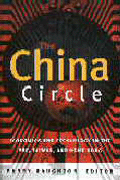
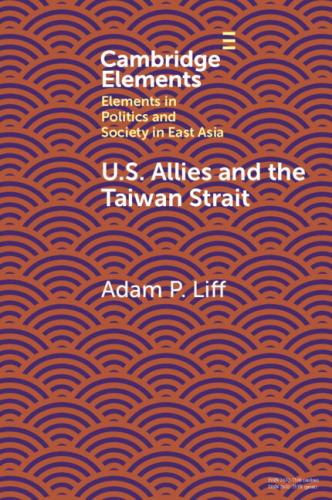
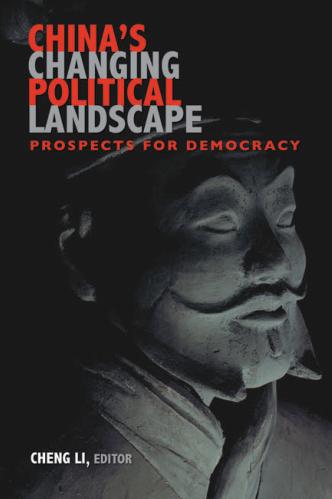
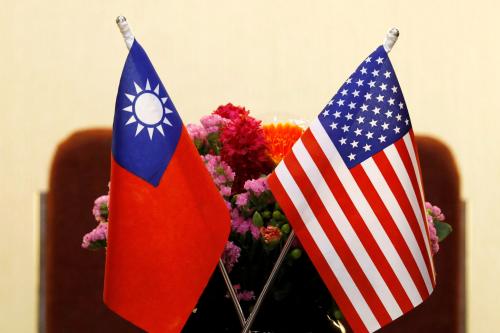

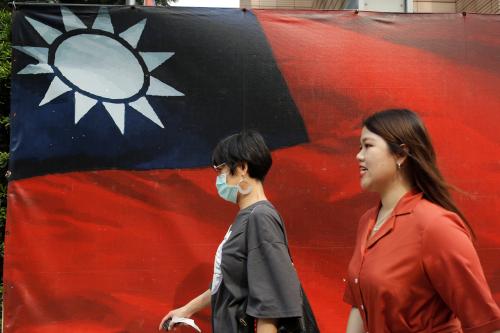



Commentary
A case for optimism on US-Taiwan relations
November 30, 2020